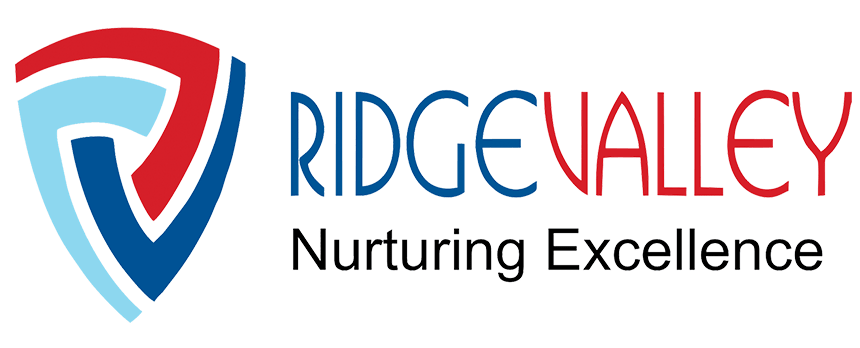Introduction:
Education is often described as a three-way partnership between schools, students, and parents. While schools provide the curriculum and teachers guide the process, parents remain the foundation upon which a child’s learning journey is built. At Ridge Valley, the Top School in Gurgaon where in the context of modern CBSE schools, parental involvement has emerged as a key factor that significantly contributes to academic success, student well-being, and institutional reputation.
This article explores in depth Parental Involvement and Its Impact on the Success of Schools, examining the different forms of engagement, benefits for students, challenges faced, and strategies schools adopt to strengthen collaboration with families.
About Us:
We believe education is a partnership—between students, teachers, and parents. At Ridge Valley School, our Parent-Teacher Forum and open communication channels allow parents to be an active part of the educational journey. From organizing events—Annual Day, Declaverse Declamation, STEMExpos, Summer Camps—to volunteering during adventure trips and workshops, parents are deeply involved. The school ensures regular feedback, joint decision-making, and collaborative initiatives that reflect shared values and goals. Extracurricular programs—sports tournaments, music, arts, drama—often invite parental participation and encouragement. With personalised learning environments, mentor-mentee programs, and a caring faculty, we see parental involvement as instrumental to both academic success and emotional well-being. This collaborative culture strengthens outcomes, fosters trust, and enables every child to flourish.
Why Parental Involvement Matters in CBSE Education
CBSE is one of the most structured and widely recognized boards in India. Its focus on conceptual clarity, competitive exam readiness, and holistic development places equal responsibility on schools and parents.
-
Holistic Growth: When parents take an active interest in both academic and extracurricular areas, children develop confidence, motivation, and resilience.
-
Consistency: The alignment between school values and home reinforcement ensures consistency in discipline and learning.
-
Stronger Performance: Research shows that children with actively involved parents achieve higher grades and better attendance.
-
School Success: The reputation of top CBSE schools is often strengthened by collaborative parent communities who contribute time, feedback, and resources.
Forms of Parental Involvement
1. Academic Support at Home
Parents play a crucial role in monitoring homework, assisting with projects, and creating a positive study environment. This does not mean doing the work for children, but guiding them through challenges.
2. Participation in School Activities
From attending parent-teacher meetings (PTMs) to volunteering at events, parental presence in school activities fosters a sense of community and encourages students to perform better.
3. Communication with Teachers
Regular dialogue between parents and educators helps track progress, address concerns early, and personalize learning strategies.
4. Engagement in Extracurricular Activities
Parents who encourage sports, arts, and other co-curricular pursuits contribute to balanced student development. Their attendance at performances or matches boosts morale significantly.
5. Leadership in Parent Associations
In many CBSE schools, parent councils or associations work alongside administrators to introduce new initiatives, organize events, and contribute to policymaking.
Benefits of Parental Involvement for Students
-
Higher Academic Achievement – Students whose parents actively support learning consistently score better in examinations.
-
Improved Behavior – A child with involved parents often demonstrates discipline, responsibility, and respect.
-
Increased Motivation – Encouragement at home helps children value education and remain goal-oriented.
-
Stronger Emotional Well-Being – Parental presence gives students confidence to navigate academic and personal challenges.
-
Better Attendance – Schools with strong parental involvement report higher attendance rates and fewer dropouts.
Benefits for Schools
The discussion on Parental Involvement and Its Impact on the Success of Schools must also highlight how institutions benefit from this collaboration:
-
Enhanced Reputation: Schools where parents are engaged are perceived as nurturing and student-focused.
-
Community Building: Active parents foster stronger ties between families, students, and staff.
-
Continuous Improvement: Constructive feedback from parents often leads to academic and infrastructural upgrades.
-
Resource Mobilization: Parents contribute resources, expertise, and connections for school initiatives.
Challenges in Encouraging Parental Involvement
While the benefits are clear, several barriers can hinder effective collaboration:
-
Busy Schedules: Many parents struggle to balance professional responsibilities with active school participation.
-
Lack of Awareness: Some parents are unsure how to contribute beyond attending PTMs.
-
Over-Involvement: Excessive interference may lead to micromanagement, reducing student independence.
-
Diverse Expectations: Conflicting views among parents and schools about teaching styles or policies can create friction.
Top-rated CBSE schools address these challenges with clear communication, parent workshops, and structured involvement programs.
Best Practices for Schools
To maximize Parental Involvement and Its Impact on the Success of Schools, institutions implement innovative strategies:
1. Regular Parent Workshops
Sessions on parenting skills, digital literacy, and mental health create awareness and equip parents to support their children better.
2. Transparent Communication Channels
Use of school apps, emails, and virtual meetings ensures parents stay updated about progress and events.
3. Flexible Participation Opportunities
From volunteering occasionally at cultural programs to mentoring students in career guidance, parents are offered diverse ways to engage.
4. Recognition and Appreciation
Acknowledging the efforts of supportive parents fosters loyalty and long-term collaboration.
5. Partnership in Curriculum Enrichment
Schools often invite parents with professional expertise to conduct guest lectures, career sessions, or skill-based workshops.
Case Study: Effective Parent-School Partnerships
Consider a scenario where a CBSE school introduces a community-based sustainability project. Parents with expertise in environmental sciences guide students, while others help with organizing field trips and awareness drives. The outcome not only enhances student learning but also strengthens the school’s image as a leader in environmental education.
Such examples highlight how parental involvement directly contributes to both academic and institutional success.
The Emotional Aspect of Parental Involvement
Beyond academics, active participation by parents addresses the emotional needs of children. Adolescents, in particular, feel supported when parents attend events, listen to their concerns, and celebrate achievements. This emotional anchor becomes a driving force behind their confidence and ambition.
Schools that recognize this dimension invest in family-oriented events such as sports days, cultural evenings, and wellness retreats that strengthen bonds between parents, teachers, and students.
Role of Technology in Strengthening Parental Engagement
Digital platforms have revolutionized how schools connect with parents:
-
Mobile Apps: Track attendance, assignments, and performance reports in real-time.
-
Online PTMs: Break geographical barriers for working parents.
-
Virtual Learning Updates: Access to recorded sessions and study materials keeps parents aligned with academic progress.
By leveraging technology, schools have expanded the scope of parental involvement beyond physical meetings.
Future of Parental Involvement in CBSE Schools
The role of parents will continue to evolve with education trends:
-
Global Exposure Programs: Parents will collaborate in facilitating international exchange opportunities for students.
-
Focus on Mental Health: Schools and parents will jointly prioritize emotional well-being initiatives.
-
Skill-Based Education: Parents will increasingly mentor students in areas like entrepreneurship, coding, or creative arts.
-
Sustainable Partnerships: Long-term parent engagement models will shape institutional success.
Conclusion:
The discussion on Parental Involvement and Its Impact on the Success of Top School in Gurgaon makes one thing abundantly clear: schools cannot succeed in isolation. At Ridge Valley, the Top Rated Schools where the most effective educational environments are those where parents actively partner with teachers and administrators.
When parents engage meaningfully, students achieve higher academic success, show stronger emotional resilience, and develop into well-rounded individuals. At the same time, schools benefit from enhanced reputation, community building, and continuous growth.
In the competitive educational ecosystem of Gurugram, top-rated CBSE schools that prioritize parental involvement stand apart as true leaders in holistic learning. They create ecosystems where families and institutions work hand in hand, ensuring that every child not only succeeds in examinations but thrives in life.
FAQs:
Q1. Why is parental involvement crucial in education?
A1. It strengthens the learning process, motivates students, and builds a support system for academic and personal growth.
Q2. How can parents actively participate in school activities?
A2. Through volunteering at events, attending parent-teacher meetings, supporting clubs, and contributing to community programs.
Q3. What impact does parental involvement have on student performance?
A3. Studies show students perform better academically and emotionally when parents engage actively in their education.
Q4. Do top CBSE schools encourage parent partnerships?
A4. Yes, they create forums, workshops, and open communication channels to involve parents in decision-making.
Q5. How does parental engagement influence extracurricular success?
A5. Encouragement from parents boosts children’s confidence in arts, sports, and competitions, leading to better performance.
Q6. Can parental involvement help shape school policies?
A6. Absolutely—schools often seek parental feedback to design initiatives that benefit both students and the community.










